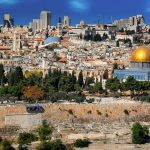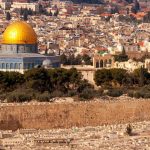New Scotland Yard,
Victoria Embankment,
London,
SW1A 2JL
Dear Commissioner Sir Mark Rowley
We are writing to draw your attention to the procedural irregularities and the eventual draconian police tactics employed at the pro-Palestine demonstration in central London on 18 January. The actions taken by the Metropolitan Police at this event raise serious questions about impartiality and respect for the fundamental rights to freedom of expression and assembly.
Having first agreed with protest organisers their preferred route – which would have seen them march from the BBC headquarters – the Metropolitan Police then withdrew its permission, because of concerns that have been expressed regarding the safety of Jews attending a synagogue some 400 yards from the confirmed route. This is inexplicable since prayer and related activities are normally concluded well before mid-day. More significantly, there have been no recorded incidents of attacks on any synagogue close to the route of previous national Palestine demonstrations in London. The Metropolitan Police’s own statistics show a very low level of arrests associated with previous demonstrations.
At the protest in Whitehall, The Metropolitan Police applied unnecessary and arbitrary measures, by blocking access to tens of thousands who were trying to reach the previously agreed location for the speakers’ stage. The unprecedented level of force shown by the police during the demonstration resulted in 77 people being arrested.
This approach suggests a troubling policy shift towards suppressing pro-Palestine demonstrations, which we fear may have a chilling effect on lawful protest and dissent. On most protest days, with hundreds of thousands of marchers, the level of disorder judged by the combined figures of arrests and convictions seems lower than at most football games. Previous demonstrations have demonstrated that participants are non-violent, law-abiding citizens, marching in support of International Law, against the genocide taking place in Gaza, as corroborated by the UN, ICJ and ICC.
The shock tactic used of arresting demonstrators for actions that clearly do not cross the criminal threshold appears to be designed to intimidate demonstrators and restrict the right to lawful protest.
For example, one individual was detained under the Terrorism Act for holding a banner calling for Hezbollah to be de-proscribed, while another was arrested for likening the Holocaust to the ongoing slaughter of children in Gaza. Both actions clearly fall within the bounds of lawful expression. The decision to criminalise them, let alone apply Terror legislation, is disproportionate and raises serious concerns about the intent behind such policing.
The heavy-handed approach displayed by the police on Saturday appears designed to intimidate and stifle pro-Palestine, anti-genocide protest, undermining democratic principles, as well as the rule of law.
Over the past 15 months, various pro-Palestine organisations have documented systemic bias and overly aggressive policing at their regional events. We draw your attention to two reports by the Islamic Human Rights Commission which detail these issues:
https://www.ihrc.org.uk/the-authoritarian-drift-of-the-european-democratic-state-part-2/
However, the sheer scale of arrests during the National demonstration in London is unprecedented, as the monthly figures clearly show (see attached graph). Previous monthly demonstrations have been overwhelmingly peaceful and law-abiding in the face some quite intense provocation by pro-Israel supporters.
This escalation is particularly concerning in light of comments made the following day, when you addressed an event organized by the Board of Deputies of British Jews, which self identifies as a pro-Israel organisation. At this event, you stated that “sharper and stronger conditions” had been imposed on the demonstration in response to concerns about its impact on Jewish communities. The Board of Deputies, a vocal opponent of pro-Palestine demonstrations, is an interested party. To prioritise its partisan concerns about criticism of Israel over the rights and freedoms of peaceful demonstrators, including many anti-Zionist Jewish organisations, is a troubling departure from impartial policing.
The large number of Jews who participate are an integral part of the protest at every demonstration, marching as the Jewish Bloc, Are such law-abiding Jews less Jewish than the members of the Board of Deputies who appear to support what the ICJ describes as ‘plausible genocide’?
In addition to the concerns raised, we believe it is vital to understand the broader context surrounding the policing of this demonstration. Specifically, we request detailed explanations regarding the following:
- Political Representations: What representations, if any, were made to you by politicians, including the Home Secretary, regarding the imposition of these severe restrictions on the demonstration?
- Mayoral Involvement: What representations or instructions, if any, were received from the Mayor’s Office about imposing restrictions on the protest?
- Community Group Representations: What representations were made by community groups, including the Board of Deputies of British Jews or Community Security Trust, concerning restrictions on the demonstration?
- Police Orders and Instructions:
- What specific orders or directives were issued by you or any other police commander in charge of the event regarding the handling of demonstrators and the use of arrests?
- Were there any operational guidelines or thresholds set for determining grounds for arrest during the demonstration?
- What specific instructions were given to officers during the pre-event briefing regarding crowd control, interaction with demonstrators, and thresholds for making arrests?
- Were officers instructed to take any specific measures to identify or target individuals or groups within the protest?
- Were any specialist units (e.g., Territorial Support Group, counter-terrorism officers) deployed, and if so, under what directives?
- Were officers directed to make arrests for specific actions or under specific legal provisions (e.g., the Terrorism Act, Public Order Act)?
- Were arrest thresholds or criteria established for particular activities, such as carrying banners or making statements considered controversial?
- Who held operational command on the day, and what role did they play in issuing orders for restrictions or arrests?
- What protocols were in place for engagement with demonstrators, including the handling of disputes or complaints raised during the protest?
- Were officers instructed to document or collect evidence on specific individuals or groups during the protest, and how was this information used?
- Were officers authorised to use any specific levels of force during the protest?
- Were any incidents of force escalated or de-escalated, and what criteria were used to guide such decisions?
Answers to these questions are critical to ensure transparency and accountability in the policing of future public demonstrations. The public deserves to know whether decisions impacting the fundamental rights to protest and free expression were influenced by undue political or external pressures, or whether they were the result of an impartial assessment of public safety requirements.
Finally, it is important that you meet with community groups to provide an explanation on how you will safeguard the rights of demonstrators at future demonstrations and how they will be policed impartially and not be met with repressive and punitive measures by your force.
Signed,
ABSoc for Justice
Ahlulbayt Sisters Association
Black Activists Rising Against Cuts (BARAC)
Black Lives Matter Coalition UK (BLM UK)
CAGE International
Cambridge Stop the War Coalition
Campaign Against Anti-Muslim Hate (CAAMH)
Campaign Against Misrepresentation in Public Affairs, Information and the News (CAMPAIN)
Campaign Against Sanctions, Military and Imperial Interventions (CASMII)
Convivencia Alliance
Disabled People Against Cuts (DPAC)
Fight Racism! Fight Imperialism!
Hindus For Human Rights UK
Innovative Minds Human Rights Group (InMinds)
International Jewish Anti-Zionist Network (IJAN)
Islamic Human Rights Commission (IHRC)
Israeli Committee Against House Demolitions (ICAHD)
Jewish Network for Palestine (JNP)
Jewish Voice for Labour (JVL)
Jews for Justice for Palestinians (JfJfP)
Muslim Public Affairs Committee UK (MPAC UK)
No2NATO
Palestine Pulse
Peacemaker Trust
Queens University Belfast Palestine Assembly
Scotland Against Criminalising Communities (SACC)
Scottish Palestine Solidarity Campaign
Spinwatch
UK Indian Muslim Council
Click here to download a PDF version



